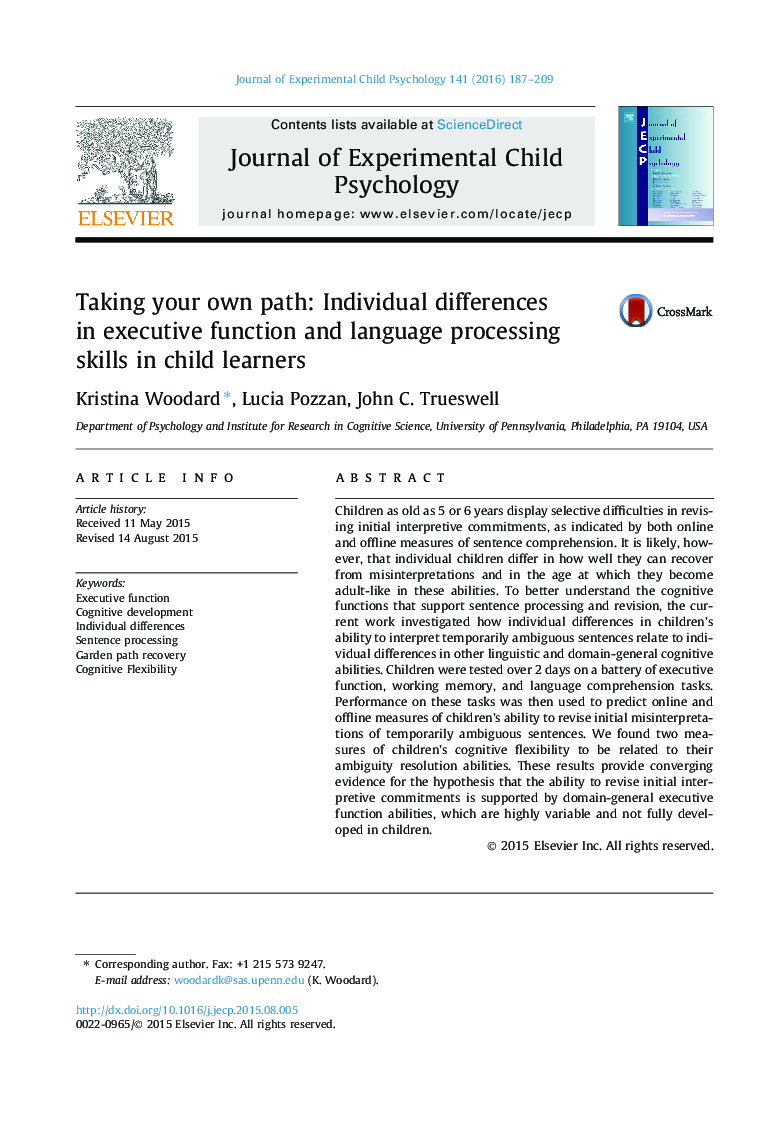| Article ID | Journal | Published Year | Pages | File Type |
|---|---|---|---|---|
| 7274959 | Journal of Experimental Child Psychology | 2016 | 23 Pages |
Abstract
Children as old as 5 or 6Â years display selective difficulties in revising initial interpretive commitments, as indicated by both online and offline measures of sentence comprehension. It is likely, however, that individual children differ in how well they can recover from misinterpretations and in the age at which they become adult-like in these abilities. To better understand the cognitive functions that support sentence processing and revision, the current work investigated how individual differences in children's ability to interpret temporarily ambiguous sentences relate to individual differences in other linguistic and domain-general cognitive abilities. Children were tested over 2Â days on a battery of executive function, working memory, and language comprehension tasks. Performance on these tasks was then used to predict online and offline measures of children's ability to revise initial misinterpretations of temporarily ambiguous sentences. We found two measures of children's cognitive flexibility to be related to their ambiguity resolution abilities. These results provide converging evidence for the hypothesis that the ability to revise initial interpretive commitments is supported by domain-general executive function abilities, which are highly variable and not fully developed in children.
Keywords
Related Topics
Social Sciences and Humanities
Psychology
Developmental and Educational Psychology
Authors
Kristina Woodard, Lucia Pozzan, John C. Trueswell,
